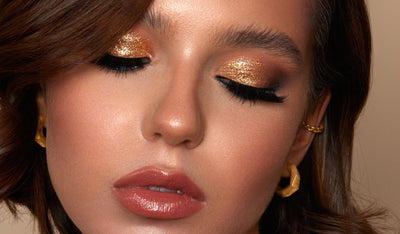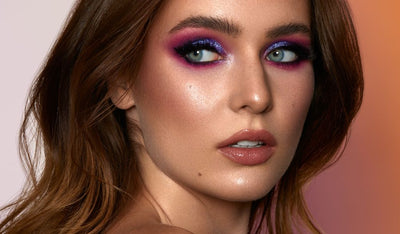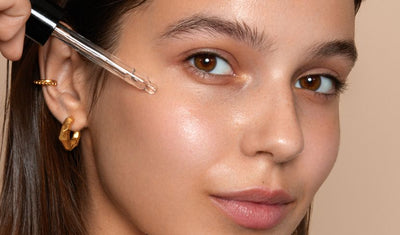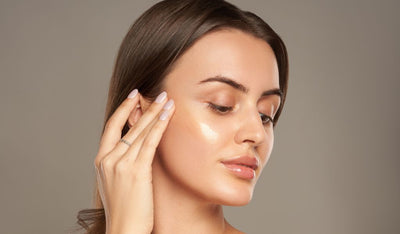As soon as you start thinking a little more about skincare, you can't avoid it: hyaluronic acid. You can find this active ingredient in a variety of creams, serums and masks - but what is it able to do? Keep reading!
What is hyaluronic acid and how does it affect the skin?
Hyaluronic acid, hyaluron and hyaluronan all describe the same active ingredient. The latter is the official scientific term. In INCI lists you will usually find the English term Hyaluronic Acid.
Hyaluronic acid is a substance produced naturally in the body and is known for its water-binding properties. It supplies the skin with moisture and ensures elasticity and firmness, especially in the top layer of the skin.
As we age, the body's own production of hyaluronic acid decreases. This means that your skin appears less plump and is more prone to dryness and wrinkles.
Hyaluronic acid is therefore increasingly found in moisturizing cosmetic products and is intended to support the body's own production.
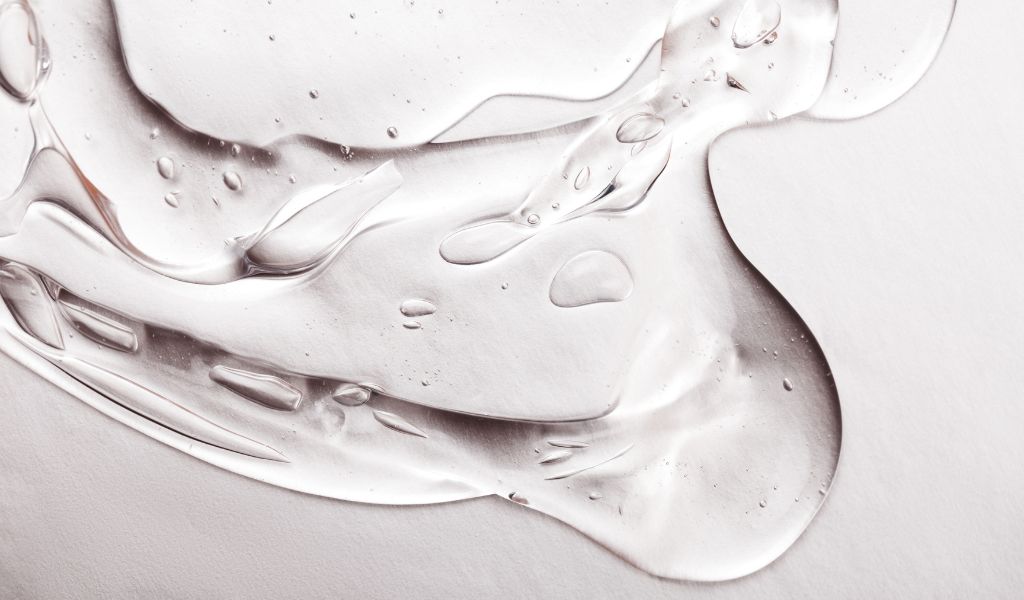
In skincare, a distinction is made between different forms depending on the size of the molecules. Long-chain or high-molecular forms of hyaluronic acid have a higher molecular weight. Products with this type of hyaluronic acid do not absorb, but rather lie on the skin like a protective film. They lock in other active ingredients wonderfully and are suitable for evening routines.
Short-chain or low-molecular hyaluronic acid, on the other hand, has a lower molecular weight and therefore consists of a short chain of molecules. Skincare with short-chain hyaluronic acid penetrates deeper into the skin and has a long-lasting, moisturizing and anti-aging effect.
Alternatively, hyaluronic acid is also available as a dietary supplement, so that you can ensure a lot of moisture from the inside. However, the effectiveness of hyaluronic acid dietary supplements has not been proven.
You are probably familiar with hyaluronic acid from many cosmetic procedures. Doctors and cosmetic studios offer hyaluronic acid injections for fuller lips or as a special wrinkle treatment. Hyaluronic acid injections are also said to help with painful joints and arthrosis.
5 benefits of hyaluronic acid for the skin
So why should you use hyaluronic products? Which skin types is hyaluronic acid suitable for?
Hyaluron provides your skin with intensive moisture and has been proven to prevent transepidermal water loss.
In fact, any skin type can benefit from hyaluronic acid. Even oily and combination skin can benefit from the properties of hyaluronic acid, as overproduction of sebum is often caused by dehydration.

In many cases, the pores produce more sebum to compensate for a lack of moisture. This leads to a shiny film in the T-zone and often to clogged pores and impurities. What's more, hyaluronic acid is very light and non-greasy.
Hyaluronic acid is a mild active ingredient that has anti-inflammatory and wound-healing effects and can also be used on sensitive skin. You just have to pay attention to the individual formulation so that hyaluronic acid is not combined with irritating ingredients or perfume.
Mature skin with fine wrinkles also benefits from hyaluronic acid. As an anti-aging substance, hyaluronic acid smoothes wrinkles and fine lines and ensures plump and plumped skin.
Long-chain hyaluronic acid in particular improves the skin barrier and protects the skin from harmful environmental influences. It therefore effectively counteracts the formation of new wrinkles.
Our product recommendations with hyaluronic acid
HA 5 Rich by Geek & Gorgeous
9,90 €
with the code
-0%
Latest lowest price: 9,90 €
(Prices incl. VAT, plus shipping)

HA 5 Light by Geek & Gorgeous
9,90 €
with the code
-0%
Latest lowest price: 9,90 €
(Prices incl. VAT, plus shipping)

Time Miracle Hydra Firm Hyaluron Concentrate Jelly from MÁDARA Cosmetics
14,95 €
with the code
-0%
Latest lowest price: 14,95 €
(Prices incl. VAT, plus shipping)

Facial Hydration Serum by MERME
ab
10,90 €
with the code
-0%
Latest lowest price: 8,02 €
(Prices incl. VAT, plus shipping)

rain tøday 120h Hypermoisture moisturizer by Nø Cosmetics
Discover more hyaluronic acid products here!
The correct use of hyaluronic acid
Hyaluronic acid is available in different concentrations as a serum, cream and mask. But formulas in lip care products or special products for the eye area are also often enriched with hyaluronic acid.
You can always find exact applications on the packaging of the respective products and on the respective product page at PURISH.
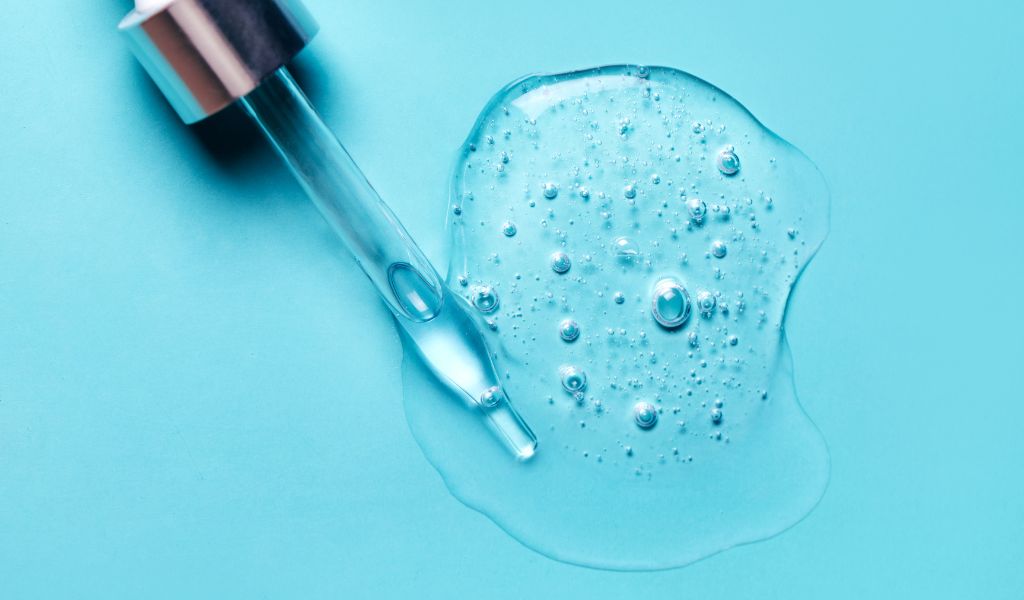
However, a general guideline is that it is best to always apply hyaluronic acid to clean and slightly damp skin. Depending on the product and skin needs, hyaluronic acid can be used up to twice a day.
Skincare routine with hyaluronic acid
Here you can find two examples of a skincare routine with hyaluronic acid, one for oily skin and one for dry skin:
Morning routine for oily skin
Cleanse optionally with a mild cleanser, such as Jelly Joker from Geek & Gorgeous or water
Balancing toner, such as Calm tøday Liquid Balancer by Nø Cosmetics
Hyaluron serum, such as HA 5 Light Serum by Geek & Gorgeous
Light moisturizer with hyaluronic acid, such as rain tøday 120h Hypermoisture Moisturizer from Nø Cosmetics
Sun protection, such as Yoghurt Sunscreen Gel for the Face SPF30 by KORRES
Lip care, such as Lip Balm SPF 50 from Paula's Choice
Evening routine for oily skin
Oil-based cleanser, such as Mighty Melt by Geek & Gorgeous
Water-based cleaning, such as Jelly Joker from Geek & Gorgeous
Active ingredient (e.g. BHA, niacinamide, vitamin A), such as Skin Perfecting 2% BHA Liquid Exfoliant by Paula's Choice
Hyaluron serum, such as HA 5 Light Serum by Geek & Gorgeous
Light moisturizer with hyaluronic acid, such as rain tøday 120h Hypermoisture Moisturizer from Nø Cosmetics
Lip care, such as Lip Sleeping Mask by Laneige
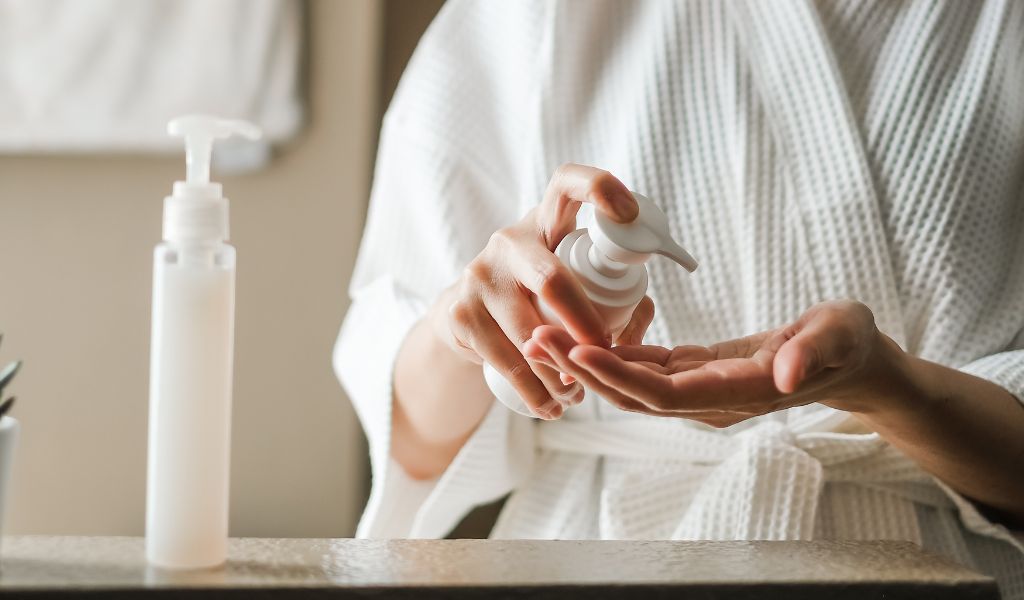
Morning routine for dry skin
Moisturizing toner, such as Comforting Toner from MÁDARA Cosmetics
Hyaluron serum, e.g. HA 5 Rich by Geek & Gorgeous
Oil for the extra moisture boost (can also be mixed into the day cream), such as Facial Balancing Elixir 100% Jojoba Oil from MERME
Rich moisturizer, such as strong tøday Hypersense Pink Power by Nø Cosmetics
Sun protection, such as Yoghurt Sunscreen Gel for the Face SPF30 by KORRES
Lip care, such as Lip Balm SPF 50 from Paula's Choice
Evening routine for dry skin
Oil-based cleanser, such as Mighty Melt by Geek & Gorgeous
Water-based cleaning, such as Jelly Joker from Geek & Gorgeous
Moisturizing toner, such as Comforting Toner from MÁDARA Cosmetics
Serum with hyaluronic acid, e.g. HA 5 Rich by Geek & Gorgeous
Active ingredient (e.g. BHA, niacinamide, vitamin A), such as A-Game 5 by Geek & Gorgeous
Oil for the extra moisture boost (can also be mixed into the day cream), such as Facial Balancing Elixir 100% Jojoba Oil from MERME
Rich moisturizer, such as strong tøday Hypersense Pink Power by Nø Cosmetics
Lip care, such as Lip Sleeping Mask by Laneige
This is what you should consider when using hyaluronic acid
Hyaluronic acid is generally well tolerated. But even if the active ingredient is associated with only a few side effects, you should do a tolerance test with every new product.
When doing the compatibility test, you should proceed as follows:
- Apply a small amount of the new product to an inconspicuous area, such as behind the ear.
- Follow the relevant package instructions.
- After 24 hours, check the area for irritation.
With hyaluronic acid, it is also important to hydrate from the inside so that you do not cause further damage to your skin. So drink 2-3 liters of water every day to support the effect of hyaluronic acid.
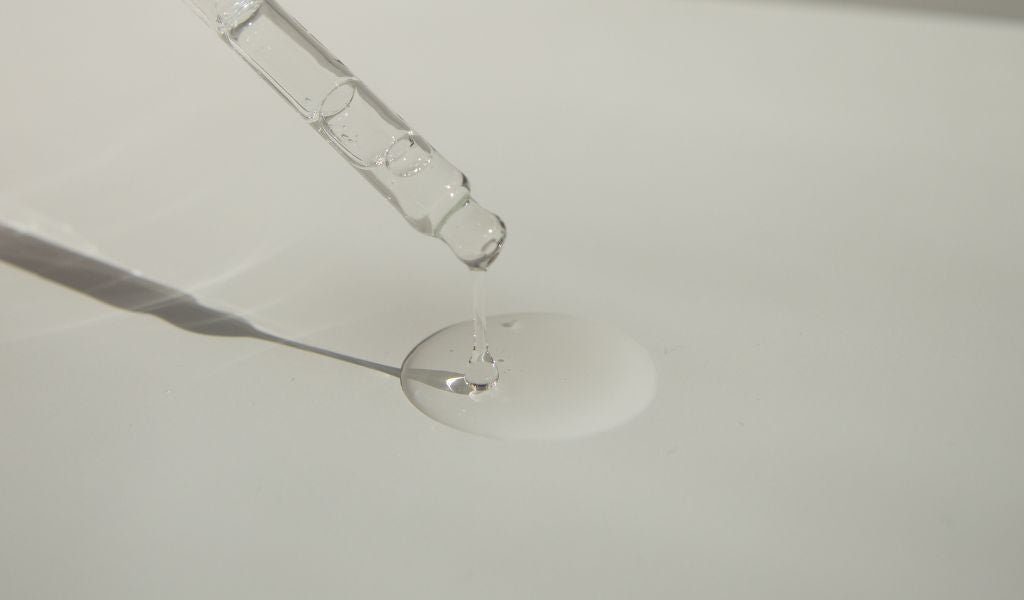
Combination of hyaluronic acid with other active ingredients
Would you like to combine your favorite hyaluronic cream with other active ingredients?
Here we show you the most well-known ingredients and what you should look out for:
Vitamin C and hyaluronan
Vitamin C, also known as ascorbic acid, is very popular because the active ingredient gradually lightens hyperpigmentation, such as pigment spots and acne scars.
At the same time, the substance ensures improved skin structure and a radiant complexion.
In combination with hyaluronic acid, you get a great anti-aging weapon. You can find combination products that contain both active ingredients, but you can also use two individual products together in one routine without any problems.
Retinol and hyaluronic acid
Retinol and retinal are considered the ultimate anti-aging miracles. They stimulate collagen production and thus effectively combat wrinkles and pigment spots. The skin enjoys new elasticity and feels noticeably plumper.
Caution is advised with retinol and retinal. Sensitive skin types in particular can react very strongly to the active ingredients. However, the higher the hyaluronic acid concentration in retinol products, the more tolerable they are.
So you don't have to worry about combining the two active ingredients - it's actually recommended. It effectively counteracts the first signs of skin aging and ensures a more even complexion.
AHA/ BHA and hyaluronic acid
In skincare, AHA (alpha hydroxy acid) describes glycolic acid, mandelic acid and lactic acid, while BHA (beta hydroxy acid) stands for salicylic acid. You can find both types of acid in a variety of chemical peels.
However, their peeling effect differs slightly from one another. Glycolic acid supports the skin renewal process, removes dead skin cells and thus ensures a smooth complexion. It is therefore excellent if you want to combat the first wrinkles.
Salicylic acid is a great ingredient for oily skin and skin that is prone to blemishes. The acid has a pore-cleansing effect and is excellent at combating blackheads and pimples.
Both acids increase the skin's sensitivity to UV radiation. Therefore, be sure to use sunscreen with at least SPF 30 every day.
The combination with hyaluronic acid is possible without any problems. In fact, you can find many products on the market that contain a mix. Hyaluron then serves to moisturize the skin and prevent it from drying out due to the use of the chemical peeling.
Niacinamide and hyaluronic acid
Niacinamide and hyaluronic acid both provide moisture. However, the former is also known for its brightening properties, as niacinamide has been proven to reduce hyperpigmentation.
However, niacinamide is much milder than vitamin C, for example, because it also acts as a barrier protector. This means that you can also try niacinamide if you have sensitive skin.
Because the two substances have a similar effect, a mix is perfect if you want to provide your skin with plenty of moisture. Your skin also benefits from the other advantages of niacinamide.
Hyaluronic acid – Our conclusion
In our opinion, hyaluronic acid is a must-have in every skincare routine. The moisturizing properties of both low and high molecular weight hyaluronic acid are truly impressive.
You can now find many products with hyaluronic acid - be it creams, special serums or masks. Take a look at our product recommendations if you are looking for a suitable hyaluronic cream or serum!
Artikel teilen:






























